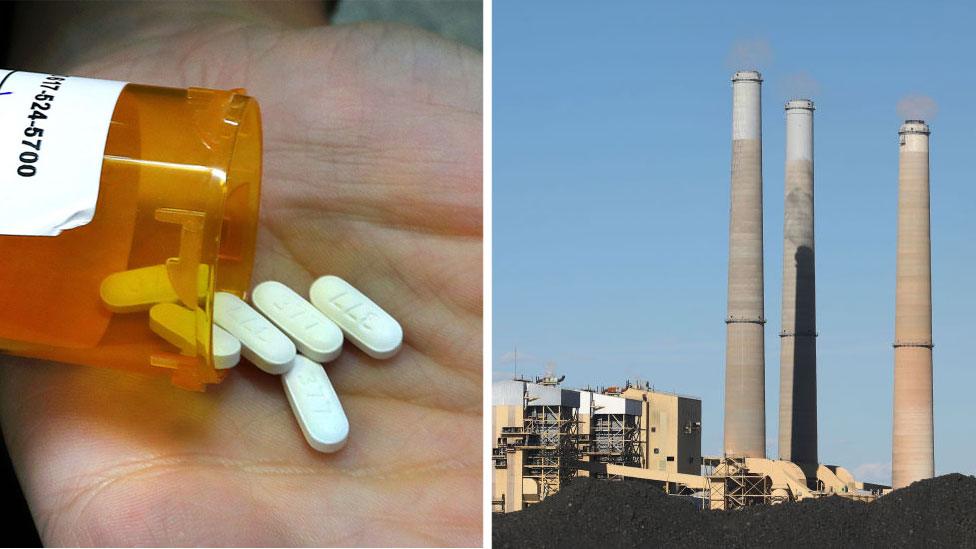Iowa caucuses: Could this be the start of a Bernie Sanders boom?
- Published
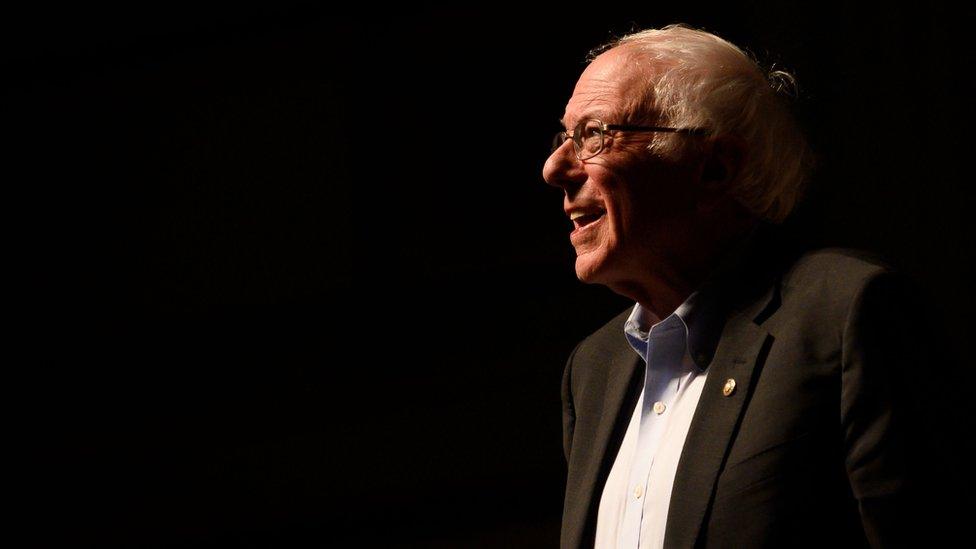
Bernie Sanders' team says it has knocked on more than 500,000 doors in the past month alone
On Monday night in Iowa, Democratic presidential contenders will have their first test before voters. It's been a long time coming.
One year, one month and three days ago, Elizabeth Warren became the first major candidate to declare her intention to seek the Democratic Party's presidential nomination in 2020.
Since then, attrition has whittled a field that once stretched to two-dozen down to 11.
Of those, only a handful has a realistic chance at this point of winning.
Pressed for time, scrambling for support
In a frenetic final few days, many of these presidential hopefuls criss-crossed Iowa, holding rallies and town halls in concert arenas and school gymnasiums, restaurants and community centres.
Three of the four senators in contention have been particularly hard-pressed, as they try to make up for being absent from the campaign trail during Mr Trump's two-week impeachment trial. Ms Warren, at a rally in Iowa City on Saturday afternoon, apologised that her schedule was so tight she wouldn't be able to stick around for her customary photographs with supporters - but her dog would.
"I cut a deal with Bailey," she said of her 20-month old golden retriever. "For extra Milk Bones he's going to stay and do the selfie line afterward."
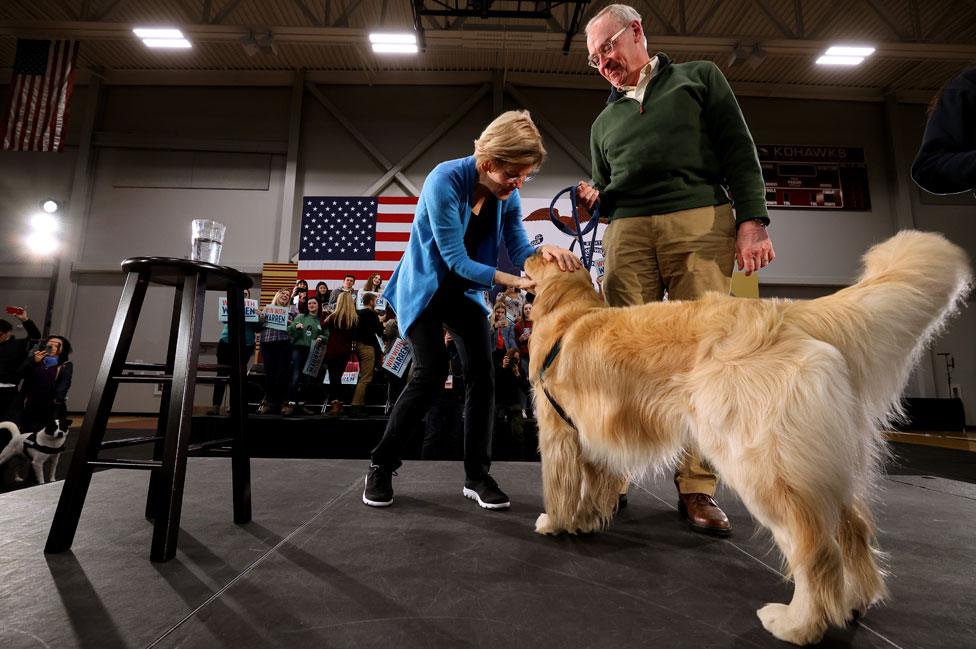
Warren's dog Bailey has become an unlikely star of her campaign
Earlier that morning, just a few dozen undecided union voters in West Des Moines gathered over coffee and breakfast pizzas, but they got personal pitches from Bernie Sanders and Tom Steyer, as well as from Joe Biden's wife Jill and Congresswoman Ayanna Pressley for Elizabeth Warren.
In Iowa, it's coming down to a heated contest for every single vote - and with polls showing that a majority of Iowans are still, at this late date, open to changing their minds, it means every speech, every handshake, every door knocked could make the difference.
"It's just wide open," says Matt Sinovic, executive director of Progress Iowa, a liberal advocacy organisation. "All the little things that add up in the end really matter - ground game, people's second choice, which campaign has well-trained people in the caucus room ... it all matters."
The stakes
Iowa doesn't always determine the ultimate Democratic nominee, but when it's a wide open field like this - without a clear home-state favourite - it can be a pretty accurate predictor.
Hillary Clinton narrowly won in 2016. Barack Obama in 2008, John Kerry in 2004 and Al Gore in 2000 all had more comfortable victories. Every single one went on to become their party's standard-bearer.
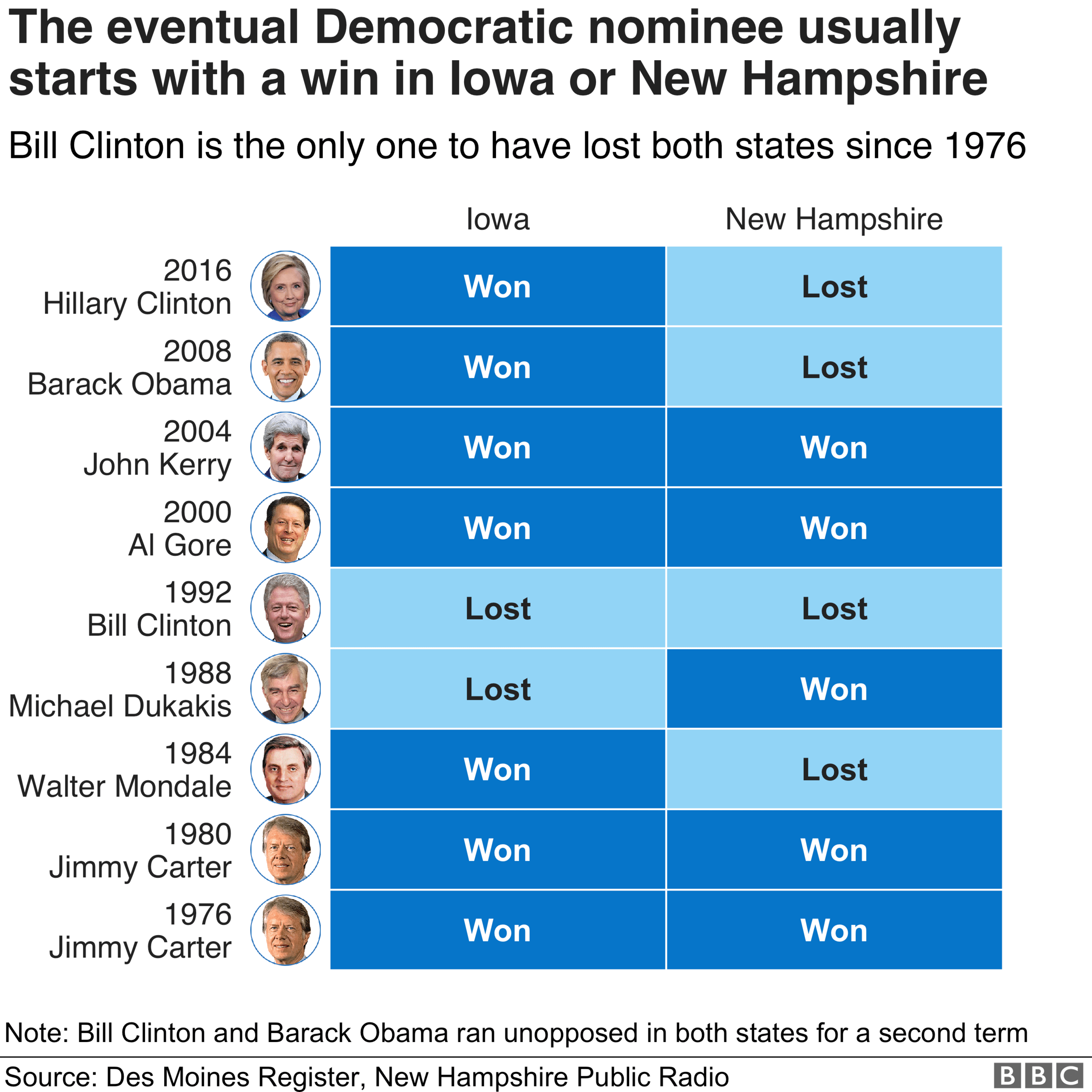

What's more, an Iowa win followed by one the following week in New Hampshire is a seldom-accomplished feat. Only two non-incumbent Democrats, Kerry and Gore, have done so since the modern primary system began.
If polls are any indication, Bernie Sanders has the potential to pull off such a double play. A Bernie boom scenario starts in Iowa.
In the words of Dave Nagle, former chair of the Iowa Democratic Party, there are three keys to winning the Iowa caucus: organise, organise and peak late. Sanders has a massive ground game built on the foundation of his 2016 campaign. He likes to boast that his team has knocked on more than 500,000 doors in the past month alone. And, if polls are to be trusted, he's the candidate with the hot hand.
The state could also prove pivotal for former Vice-President Joe Biden, who has reoriented some of his limited campaign advertising resources here from states like New Hampshire and South Carolina, which votes in late February.
A win in Iowa could set him up for his own primary run, keeping Sanders in check and validating a front-runner status that many in the party have viewed as tenuous. A loss, on the other hand, could have party loyalists - particularly moderates not enamoured by Sanders and fellow progressive Warren - scrambling to find for another option.
A result other than a Biden or Sanders victory - Pete Buttigieg recapturing his past momentum or Amy Klobuchar with a late surge - will leave a more muddled picture and could foreshadow a long, drawn-out primary season.
The Klobuchar conundrum
Klobuchar is a prime example of why the caucus structure could make a caucus-goer's second choice pivotal.
At each of the 1,677 locations across the state, a candidate must have the support of at least 15% of voters in order to qualify for a chance to win Iowa delegates to the national convention in July - when the candidate is ultimately picked. After a first round of tabulations, those who support a candidate that doesn't reach "viability" have the opportunity to switch sides.
Polls suggest that shouldn't be a concern for Biden, Sanders and Buttigieg. But while Klobuchar has been rising in recent surveys, there's still a very real chance that in many locations here supporters could be left looking for alternatives in the second round.
Already there are reports that other campaigns, including Biden's, are reaching out to Klobuchar for a bit of deal-making.
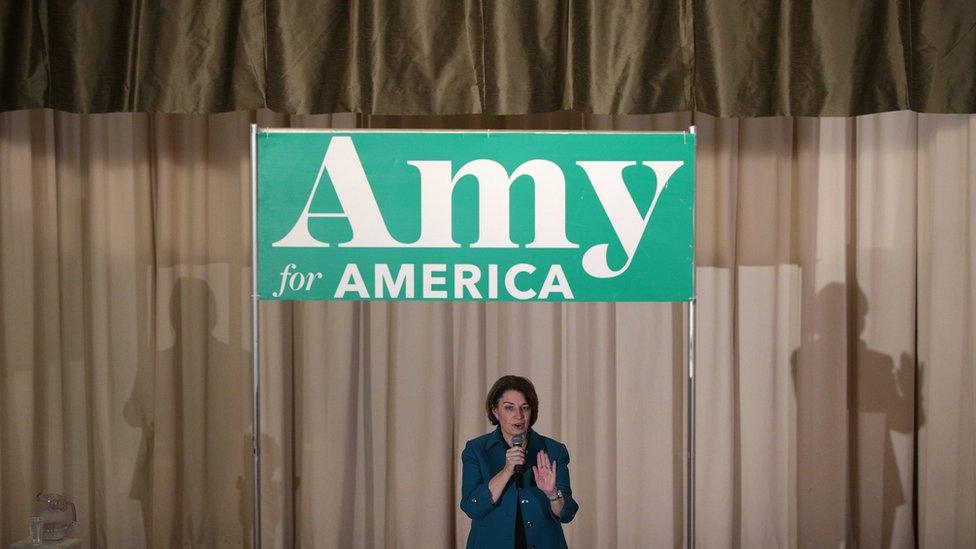
"I have been punching way above my weight," Amy Klobuchar told supporters
Part of Klobuchar's appeal is her practicality. The Minnesota senator styles herself as the sensible candidate who doesn't make unrealistic promises.
At a Sunday afternoon rally in Cedar Rapids, Steve Schuttee, a Klobuchar supporter, grappled with a practical choice: Who should he support if he and his wife can't stick with their candidate?
"I don't know how the caucuses will go, but we're going to fight for Amy's as long as we can," he says. "Then our number two is Pete."
Buttigieg and Biden are two of the more obvious choices for Klobuchar supporters - and there could be a pitched battle between the two moderates for their hearts, minds and support.
"I have been doing this the hard way, and I have been punching way above my weight," Klobuchar said at her Cedar Rapids rally. On Monday night, she'll have to hope those punches land her near the top - or her practical supporters could start looking elsewhere.
Feuding down the stretch
Two weeks ago, the big story was the heightened tensions between the Warren and Sanders camps. Both candidates were pitching to the same contingent of progressive voters and, after months of a seeming non-aggression pact, the friction of competition started to generate sparks.
Ms Warren says Mr Sanders told her a woman could not win the US presidency
Both sides have tried to downplay the conflict since then, but on caucus night the Warren and Sanders camp will be face to face across the state.
Complicating matters is that as soon as the Sanders side puts one feud to bed, an old one is being rekindled. After 2016 Democratic opponent Hillary Clinton made numerous pointed criticisms of Sanders in interviews over the past week, Sanders surrogate Rashida Tlaib joined a crowd at a Des Moines rally on Friday night in roundly booing at the mention of the former party nominee.
Tlaib apologised the next day - but the damage was done. In a contest where every candidate is touting their ability to beat Trump in November, concerns about Sanders' ability to unify the party may be a liability. Across the state the Warren campaign will be going head-to-head against the Sanders faithful. Will tempers flare again?
Monday night turnout
At an Andrew Yang rally on Saturday night in Des Moines, the candidate told the crowd of more than a thousand supporters that his campaign was going to "shock the nation" at the Iowa Caucuses on Monday night.
Most polls suggest this is unlikely - and the reason is because they weight their surveys based on who they think will actually show up at the caucus sites on Monday night. If Yang is to be successful - and if the polls are wrong - he'll need to count on people like 30-year-old Eric Theil of Aimes, a rally attendee who said it had been so long since he last caucused that he could not remember when it was.
"I feel like he speaks to all Americans and at the same time he's offering something new that can make the country better," Thiel said.
How Iowa is like the luge: An unconventional guide to the caucuses
A caucus turnout that skewed toward a younger electorate, with more first-time caucus-goers, would be good news for Yang - and for Bernie Sanders, who always does better in polls that don't screen as tightly for likely voters. If a survey predicts that an older, more traditional crowd of regular caucus-goers shows up on Monday, it will probably be a strong night for a candidate like Joe Biden.
"It all comes down to turnout" is a political refrain so common as to be cliche. In the case of the Iowa caucuses this year, however, it's particularly true.
"Let us go forward today, tomorrow, and create the largest voter turnout in the history of the Iowa caucus," Sanders said at a campaign organising event in Cedar Rapids on Sunday morning. "And when we do that, we win here, we have a path toward victory."
If Sanders - or Yang - does better than expected, it could just be a sign that the anti-establishment campaigns have the ability to expand the electorate not just in Iowa, but in all the states to come.
A winner - or winners?
Complicating all this is the new reporting system the Democratic Party has instituted for the Iowa caucus results. In the past, the party has only released one number - the final tabulation of support after all the caucus horse-trading and support swapping takes place. This time, however, there will be two sets of numbers - the final tally as well as a count of each candidate's support in the first round of balloting.
That means two - or more! - candidates could on stage declaring victory on Monday night.
The Sanders camp has said they're going to emphasise the first round of numbers - an understandable position, given that poll suggest their man may be in the lead. But the second round of voting could give a boost to one of the more moderate candidates, someone like Biden or Buttigieg, as supporters for Klobuchar get swept up by the stronger of the two moderates.
It has the makings for a long, chaotic night - the first of what could be many for the candidates still standing after the Iowa dust settles.
- Published3 February 2020
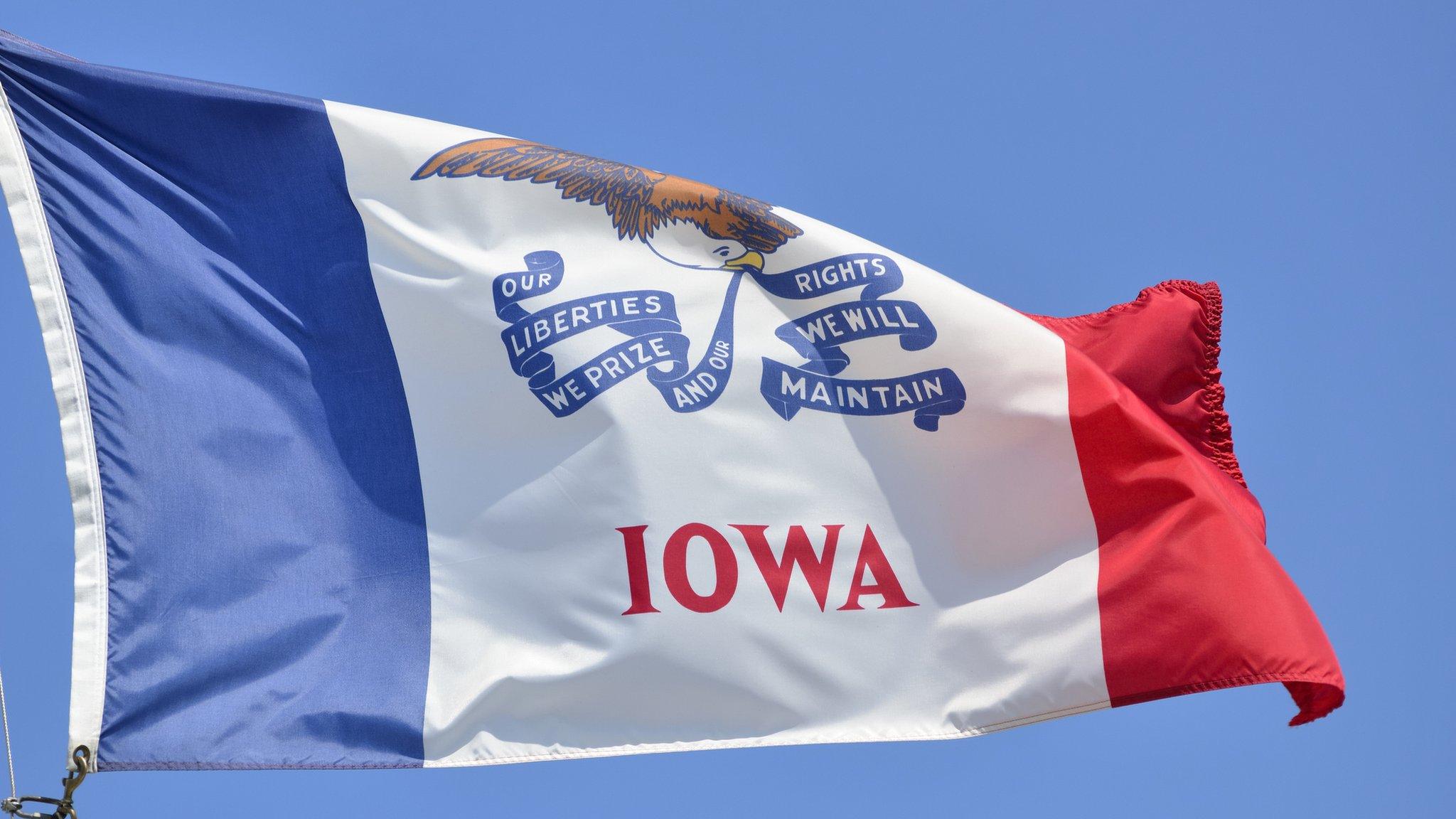
- Published5 March 2020
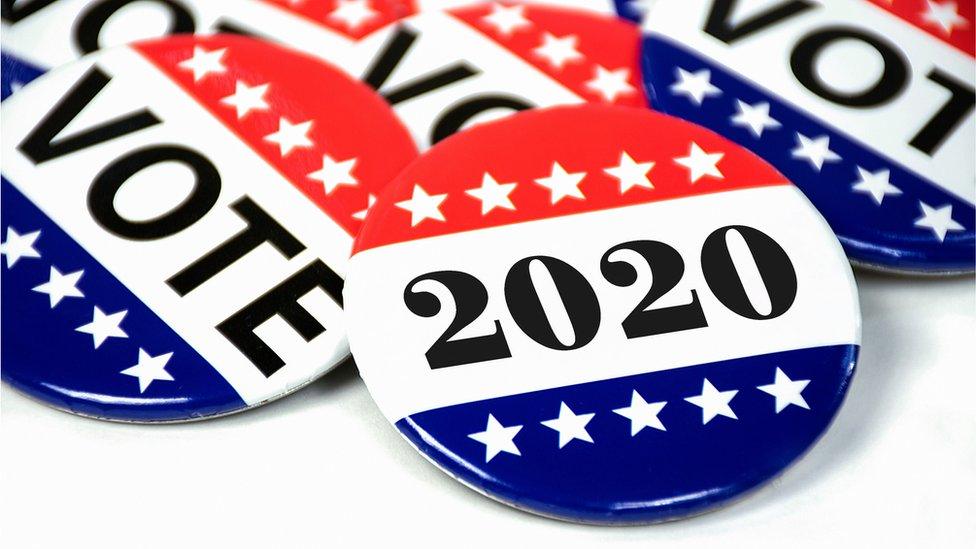
- Published19 May 2020
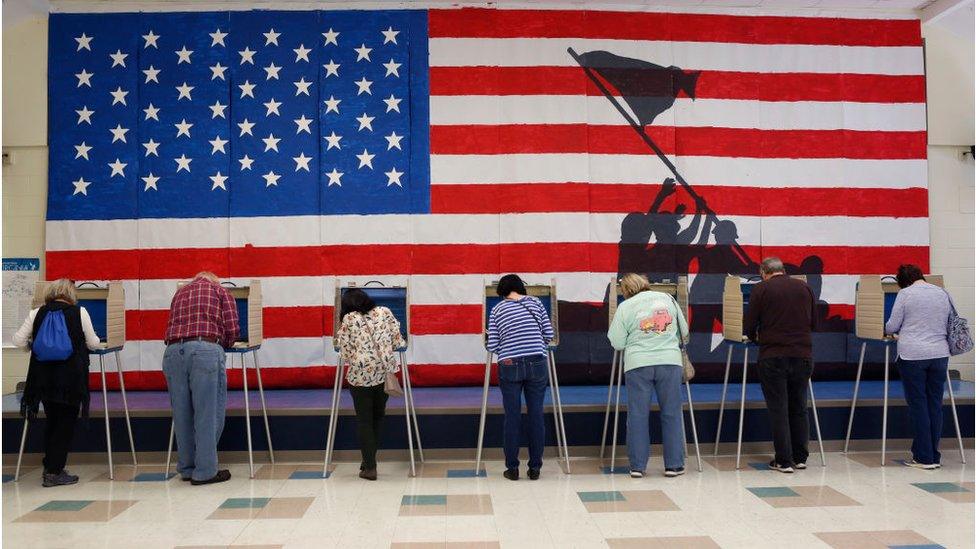
- Published9 December 2019
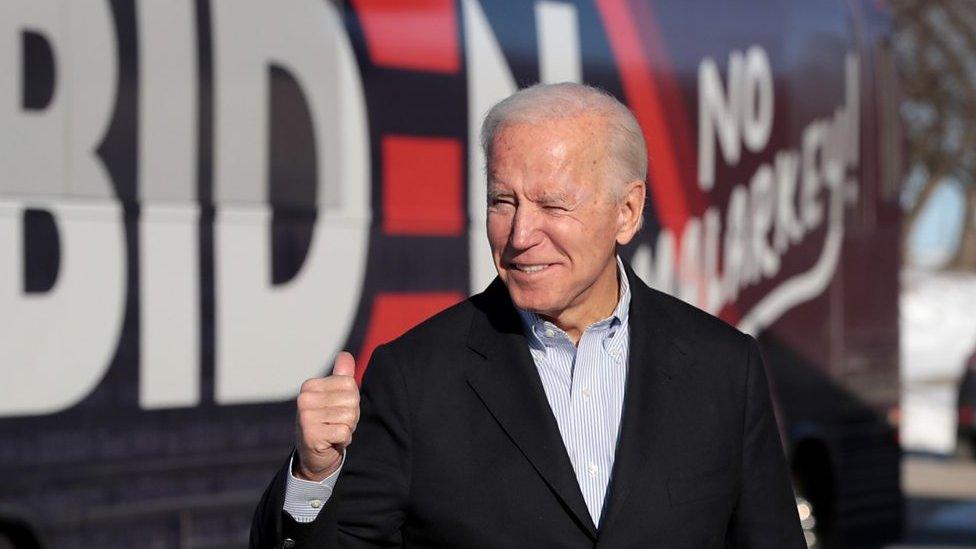
- Published2 March 2020
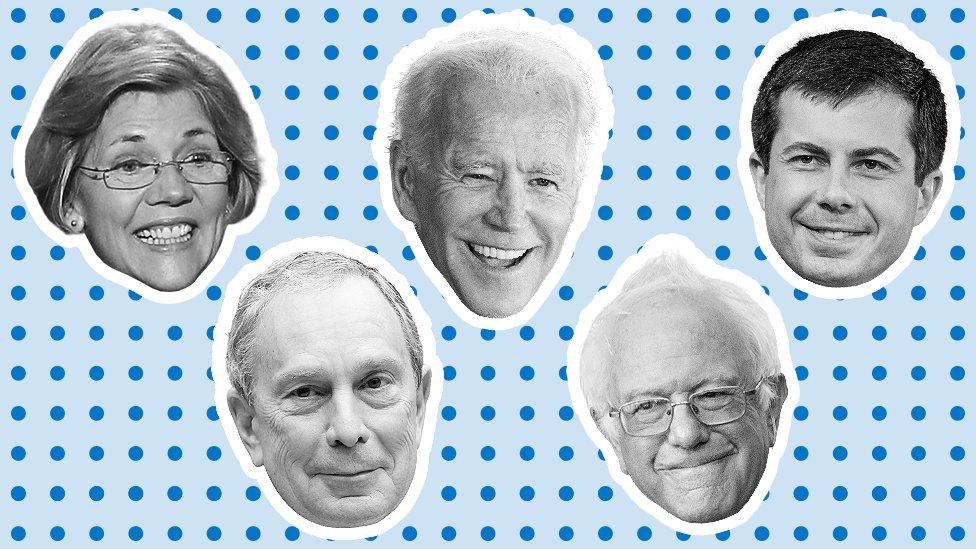
- Published17 January 2020
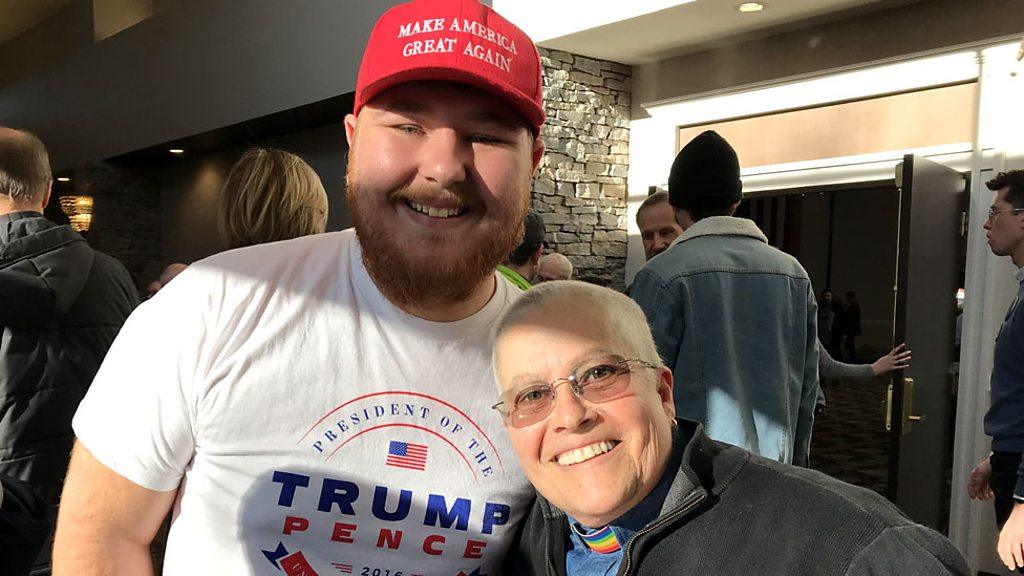
- Published4 February 2020
